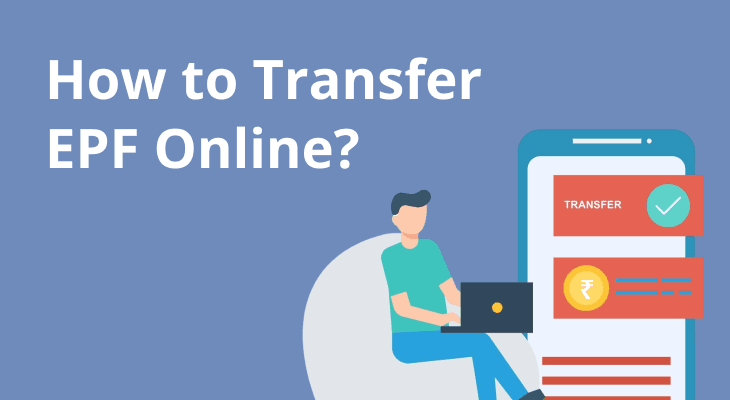
Why Is An Income Proof Important?
Your income proof document is considered proof of income as an essential qualifier when applying for a home loan, requesting a government subsidy, or filling out a scholarship application.
In India, where most of the workforce is self-employed or engaged in the informal sector, proving one's income can become challenging and intimidating.
Nevertheless, a valid proof of income letter or certificate cannot be emphasised enough to access opportunities that may otherwise remain out of reach. Properly verified income-proof documents are numbers on paper and help create trust and transparency.
Key Income Proof Documents in India
Whether you are a salaried professional with a fixed income or a business owner, the nature of your income determines the kind of documentation required. It is crucial to understand these nuances to provide the correct documentation in the proper context.
Let us take a closer look at the most commonly accepted income-proof documents:
1. Salary Slips
For salaried employees, salary slips serve as the primary income proof document.
- They provide monthly earnings breakdowns, deductions (like PF and TDS), and net take-home pay.
- Most institutions largely accept the last 3 to 6 months of salary slips for income verification.
- Government employees are normally mandated to submit a salary statement for the entire year.
Why it works: They are easy to access, clearly reflect consistent earnings, and come with official authentication from the employer.
2. Bank Statements
If you are self-employed, a freelancer, or don’t have a regular payslip, your bank statement often becomes your most trusted ally.
- Recurring income credits, transfers, and business transactions indicate your earnings pattern.
- Many institutions prefer 6 to 12 months’ worth of statements.
- It applies to both salaried and non-salaried individuals.
Pro tip: Annotate your bank statement with the right income sources when submitting it for official purposes.
3. Income Tax Returns (ITR)
Submitting your ITR not only fulfils a legal obligation but also serves as legitimate proof and builds a credible paper trail of your earnings.
- It is accepted for everything from visas to home loans.
- It demonstrates declared annual income and tax compliance.
- It is especially critical for self-employed professionals and business owners.
Heads-up: Since ITR represents income from the previous fiscal year, some lenders may ask for additional, up-to-date documents as proof of income. In such cases, you can submit the latest salary slips, updated bank statements showing salary or business credits, Form 16 for the current year (if available), or a current employment/income proof letter from your employer or a chartered accountant if you are self-employed.
How to Obtain an Income Certificate?
An income certificate is an official government-issued document certifying an individual's or a household’s income.
It's typically required when applying for:
- Government subsidies and schemes such as LPG or ration
- Caste certificates and educational reservations
- School or college scholarships
- Quota-based admissions
Pro Tip: When applying for an income certificate, it is recommended to keep supporting documents such as the latest salary slips, bank statements, or self-declaration affidavits up to date and consistent. Discrepancies between declared income and supporting documents may lead to delays or rejections.
To obtain an income certificate in India :
- Visit the Tehsil or SDM office or apply via state-specific e-governance portals.
- Fill out the application form and submit it along with the required verified documents, such as:
- Aadhaar card
- PAN card
- Address proof
- Salary slips/ITR/bank statements
- Self-declaration or employer certificate (if applicable)
- Submit and collect an acknowledgement slip.
- The certificate is usually issued within 7–15 working days.
Validity: An income certificate, once obtained, is typically valid for one financial year but may vary depending on the state.
When Do You Need an Income Proof Letter?
Not every circumstance requires extensive documentation. Sometimes, all you may need is a proof of income letter. This letter is a formal document usually provided by an employer, chartered accountant, or self-attested if you are a business owner or self-employed.
Use Cases:
- Rental agreements
- Embassy visa interviews
- Private school admissions
- Loan or credit card applications (especially when official documents are delayed or insufficient)
What Should an Income Proof Letter Contain?
- Full name and designation
- Source of income (salary, freelance, rent, etc.)
- Monthly or annual income
- Duration of employment or income flow
- Contact details of the issuer
- Signature and seal (for third-party-issued letters)
Income Proof Guide for Self-Employed Individuals
Being self-employed is liberating, but it can be cumbersome when it comes to paperwork. Here's how freelancers, professionals and business owners can simplify the process and provide reliable income proof:
1. Bank Statements
As mentioned earlier, reflect consistent income credits, especially with narrative qualifiers such as ‘consulting fees’ or ‘client payment.’
2. Income Tax Returns
It is advisable to file regular income tax returns honestly and consistently. Even if the amount is modest at the beginning of your career, filing an ITR will help for all official purposes.
3. Professional Practice Certificate
Doctors, lawyers, architects, and CAs may produce certificates issued by their concerned regulatory authorities, like the Medical Council, Bar Council, or ICAI, as proof of active professional income.
4. GST Returns
Returns can act as revenue records for businesses and service providers under GST.
5. Invoices and Client Contracts
These can be annexed to applications to demonstrate the regularity of income sources.
6. Self-Declaration Affidavit
Where there is no documentary proof or where it is not available, a notarised affidavit stating your income may suffice. Most official institutions accept it as a valid income-proof document when paired with supporting documents, as mentioned above.
Conclusion
Whether you’re a small business owner, a salaried employee, a gig worker, or are enjoying your retirement, having a valid and credible income proof document is considered foundational in India. From the salary slip to the detailed ITR, each document plays its role in establishing financial credibility.
Learning how and when to use an income proof letter, how to apply and procure an income certificate, and even the varying other documents required to produce or might be beneficial for them to have available to them merely guarantees that no opportunity is lost when needed for a subsidy, loan, or scholarship you may be applying for.
With proper income proof, you can transform obstacles into opportunities and unlock doors that would otherwise remain closed. Don't let paperwork stand between you and your dreams.


